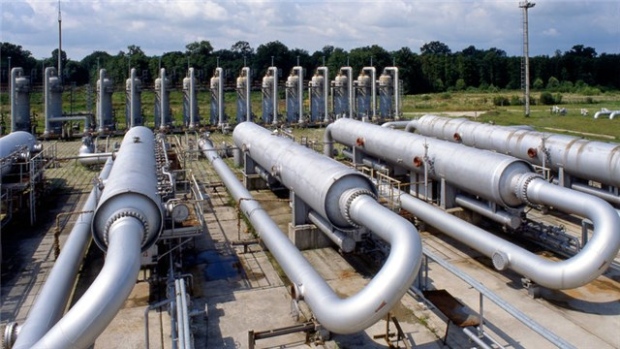Sep 5, 2017
Canadian Natural standing out in oil patch with appetite for M&A

Canadian Natural Resources is once again claiming it can find value in Alberta oil and gas where others seemingly cannot.
Domestic and international energy giants have been selling their Canadian assets – among the most expensive to operate on the planet – as the sector continues adjusting to the massive crude oil price crash that is now into its third year. Canadian Natural Resources (CNQ.TO), by contrast, has doubled down on its home turf.
The latest move was announced early Tuesday morning, when the company agreed to pay $975 million in cash for conventional oil assets Cenovus Energy (CVE.TO) was shopping near Canadian Natural’s own Pelican Lake property, located roughly 300 kilometres north of Edmonton. In March, the company agreed to pay US$8.5 billion in a mix of cash and stock to Royal Dutch Shell for its production of oil sands bitumen. Taken together, analysts argue the two transactions make Canadian Natural Resources’ strategy clear.
“I think CNQ is playing the long term game here,” Dirk Lever, head of research at AltaCorp Capital in Calgary, told BNN via email. “Crude prices, at some point, will lift and they will be one of the key players.”
Higher oil prices would help every producer, but another analyst argues Canadian Natural’s recent moves are specifically designed to give the company a unique advantage.
“They are doing an excellent job of building a quality asset base that can withstand near-term [price] volatility and yet provide big torque to stronger mid-term oil and natural gas prices,” Dan Tsubouchi, chief market strategist for Calgary-based Stream Asset Financial Management, told BNN via email.
“The long life [oil sands] assets are low decline, free cash flow assets. They provide a big uptick in value if the long-term oil prices [rise] as I believe they will,” he wrote.
Global supermajors are just starting to adopt a similar mix of long and short-term priorities, Tsubouchi said, “but CNQ has been building this type of portfolio for years,” he noted.
Despite making multibillion-dollar acquisitions at a time when crude oil prices remain at less than half the triple-digit-levels seen up until late 2014, Canadian Natural has managed to keep its balance sheet in enviable shape. Outstanding net debt of roughly $22 billion is no small figure, but with about $2.60 in debt for every dollar in cash flow it generates, Canaccord Genuity estimates the company can easily afford to continue its 16-year streak of increasing its quarterly dividend every year.
Canaccord notes Canadian Natural will be able to steadily reduce debt using free cash flow alone by 2019.
Cenovus, according to calculations from a separate Canaccord report, will still owe roughly $4.80 for every dollar in cash flow it generates even after it uses the proceeds from its Pelican Lake deal to pay off some of the debt it picked up in March to finance its $17.7-billion deal with ConocoPhillips (COP.N) to acquire its joint venture partner’s stake in their shared oil sands assets.
Canadian Natural has managed to continue making acquisitions, while Canada’s largest oil sands player – Suncor Energy – has more recently moved to the sidelines. Having recently acquired a majority stake in the Syncrude oil sands facility and a larger majority of the Fort Hills mine, which is due to begin production before the end of this year, analysts have anecdotally suggested Suncor simply has its hands too full to also hunt for more assets to buy.
What is perhaps the most noteworthy aspect of Canadian Natural’s decision to dive even deeper into the conventional oil production is how some have dismissed the move as entirely insignificant.
“This is not a material acquisition for CNQ,” Menno Hulshof of TD Securities told clients in a note published Tuesday after the announcement was released. “The lack of materiality was arguably also reflected in its two-line press release.”
The announcement from Canadian Natural Resources on Tuesday may have been short, but the strategy behind it has been in the works for a very long time.

